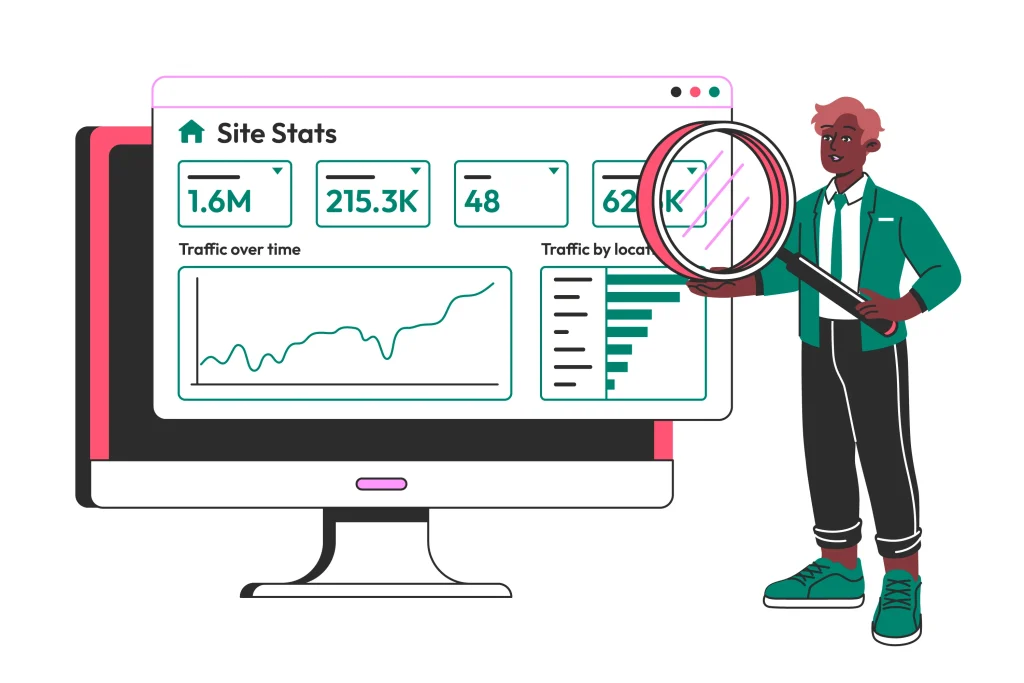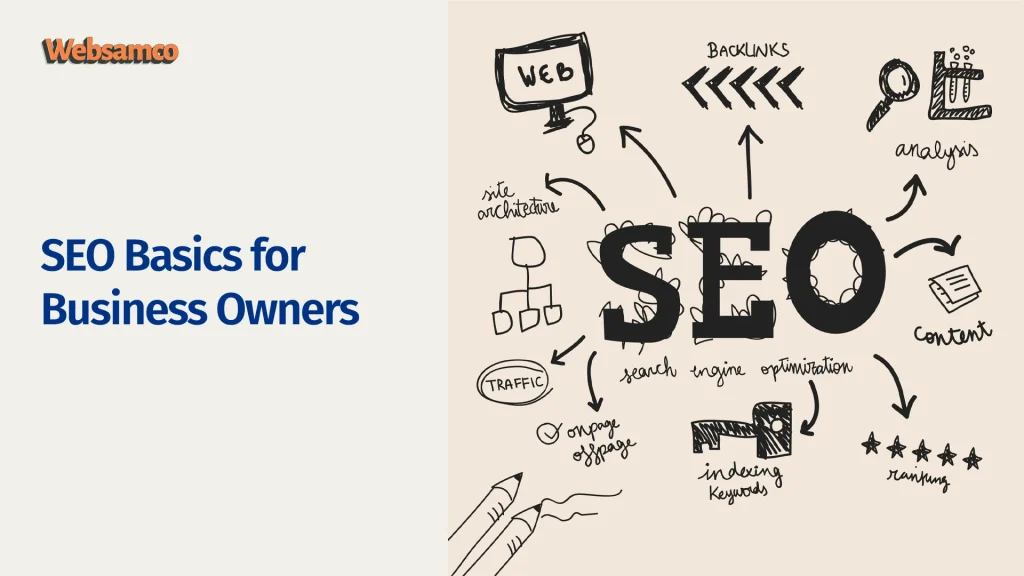If you own a business and want to grow your online presence, SEO (Search Engine Optimization) is one of the most powerful tools available. But for many business owners, SEO feels complex and overwhelming. What exactly is SEO? How does it work? And most importantly, how can you use it to attract more customers?
In this guide, we’ll break down SEO in simple terms and answer all the key questions business owners have. By the end of this article, you’ll understand the basics of SEO and how to use it effectively for your business website.
What is SEO?
SEO (Search Engine Optimization) is the process of improving your website’s visibility on search engines like Google. When people search for products or services related to your business, you want your website to appear at the top of search results. SEO helps you achieve this by optimizing different aspects of your website and online presence.
Why is SEO Important for Business Owners?
Here are some key reasons why SEO matters for your business:
- Increases Website Traffic: Higher rankings in search results mean more visitors to your website.
- Builds Credibility & Trust: Websites that appear at the top of search results are perceived as more trustworthy.
- Generates Leads & Sales: More visibility means more potential customers finding your business.
- Cost-Effective Marketing: Compared to paid advertising, SEO provides long-term organic traffic without ongoing costs.
How Do Search Engines Work?
Search engines like Google use algorithms to determine which pages to show in search results. They analyze websites based on three main factors:
- Crawling: Google’s bots (called crawlers) scan the web to discover new and updated pages.
- Indexing: The crawlers store the content of pages in Google’s massive database (index).
- Ranking: When a user searches for something, Google ranks pages based on relevance and quality.
By optimizing your website, you help search engines understand your content better and rank it higher in search results.

Key SEO Strategies for Business Owners
Let’s break down the most important SEO practices you need to focus on:
1. Keyword Research
Keywords are the words and phrases people type into search engines. Choosing the right keywords helps your website rank for relevant searches.
How to Find the Right Keywords:
- Use tools like Google Keyword Planner, Ahrefs, or Ubersuggest.
- Focus on long-tail keywords (e.g., “best digital marketing agency for startups” instead of “marketing agency”).
- Check what keywords your competitors are ranking for.
2. On-Page SEO
On-page SEO refers to optimizing elements on your website to improve rankings.
Key On-Page SEO Factors:
- Title Tags: Ensure your page titles include your main keyword.
- Meta Descriptions: Write compelling descriptions that encourage people to click.
- Headings (H1, H2, H3): Use structured headings to organize your content.
- Image Optimization: Use descriptive file names and alt text.
- URL Structure: Keep URLs short, simple, and keyword-rich.
- Internal Linking: Link to other pages on your website to improve navigation and SEO.
3. Technical SEO
Technical SEO focuses on improving your website’s backend to ensure search engines can crawl and index it properly.
Important Technical SEO Factors:
- Website Speed: A slow website hurts rankings. Use tools like Google PageSpeed Insights to check performance.
- Mobile Friendliness: Google ranks mobile-friendly websites higher.
- Secure Website (HTTPS): Having an SSL certificate improves security and trust.
- Fix Broken Links & Errors: Regularly check for broken links and fix them.
4. Content Marketing & Blogging
Content is a major part of SEO. Regularly publishing high-quality content helps attract visitors and boost rankings.
How to Create SEO-Friendly Content:
- Answer common customer questions.
- Use a mix of text, images, and videos.
- Write long-form, detailed articles (1,500+ words perform well).
- Keep content updated and relevant.

5. Link Building
Getting backlinks (links from other websites to yours) signals to Google that your site is trustworthy.
Ways to Get Backlinks:
- Publish high-quality, shareable content.
- Guest post on relevant blogs.
- List your business in directories like Google My Business, Yelp, etc.
- Collaborate with influencers in your industry.
6. Local SEO (For Local Businesses)
If you have a physical location, optimizing for local SEO is crucial.
How to Improve Local SEO:
- Claim your Google My Business listing.
- Get customer reviews on Google and Yelp.
- Use location-based keywords (e.g., “best bakery in New York”).
- Ensure NAP (Name, Address, Phone Number) is consistent across directories.
7. SEO Analytics & Tracking
To measure your SEO success, track key metrics using:
- Google Analytics: Monitors website traffic and user behavior.
- Google Search Console: Shows keyword rankings and technical issues.
- SEO Tools (Ahrefs, SEMrush, Moz): Provides in-depth insights.

Common SEO Mistakes to Avoid
Many business owners make mistakes that hurt their SEO. Here are some to watch out for:
- Ignoring Mobile Optimization: Ensure your website is mobile-friendly.
- Keyword Stuffing: Overusing keywords looks spammy and can lead to penalties.
- Duplicate Content: Avoid copying content from other websites.
- Not Updating Content: Old, outdated content can lower rankings.
- Ignoring Technical SEO: Broken links, slow speed, and poor site structure can impact rankings.
How Long Does SEO Take to Work?
SEO is not an overnight success strategy. It takes time to see results. Typically:
- Small improvements can be seen in 1-3 months.
- More significant growth happens in 6-12 months.
- Competitive industries may take 1+ year to achieve top rankings.
The key to SEO success is consistency. The more effort you put in, the better your results will be over time.
Conclusion
SEO is one of the most effective ways to grow your business online. By understanding the basics and implementing the right strategies, you can attract more customers, improve visibility, and build long-term success.
Start with small, actionable steps: research keywords, optimize your pages, create quality content, and track your progress. Over time, your efforts will pay off, and your website will rank higher in search results, bringing more traffic and customers to your business.
If you’re serious about growing your business with SEO, start today! Need help? Consider hiring an SEO expert or agency to guide you through the process.




